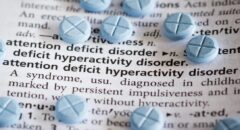
When singer Solange's breakthrough album, A Seat At The Table came out in September 2016, it quickly rose the number one album all over. Solange took the opportunity to thank her fans for helping her achieve the chart-topping position. She turned her attention to the fans and told them she is a better person for having made the album.
"And I thank you and everyone else who has been a voice for the project ....endlessly. So much gratitude," the talented singer/songwriter said. "All love....all love...but most of all. I feel like a better human after releasing A Seat At The Table. A better woman, a better mom, a better wife. Thank you."
Since then, the 34-year-old mother of two has been touring all over the world, releasing new music all while balancing being a mother.
But Solange wasn't always used to the fame. Some things in her past caused Solange to seek help.
Unlike other people who may just "go with it" after being told what may be ailing them, Solange Knowles did not find solace in her doctor's words. In fact, Beyoncé's younger sister went for a second opinion.
The soulful songstress says she's always been full of energy and claims that sometimes her sporadic speech and effervescence led people to believe she was on drugs. The real culprit? ADHD.
Knowles says that when a doctor told her she had ADHD she did not believe him: "I was diagnosed with ADHD twice. I didn't believe the first doctor who told me and I had a whole theory that ADHD was just something they invented to make you pay for medicine, but then the second doctor told me I had it."
She also said that she feels everyone in the music business seems to suffer from the symptoms of ADHD. “The symptoms seem to apply to everyone around me in the industry. Loss of memory, starting something and not finishing it...”
Traditionally, ADHD was thought to be a male-oriented disease, and men were once believed to account for the vast majority of cases. But recent research has begun to focus on how the disorder affects females, so that ADHD may be identified earlier in women’s lives.
Although ADHD can cause some difficulties, many people with ADHD are very successful in life. Following diagnosis, what's next?
Solange's case is a lesson for all of us. Take control of your health. Be present in your health and not just take what is given to you. Here are some things we can learn.
1. Learn about the disorder—what it is and what it isn't.
2. Try to get your significant other involved in learning with you.
3. Remember that getting a diagnosis of a condition like ADHD changes nothing. You only have a name for what was previously unnamed.
4. You will probably be relieved and sad after receiving your diagnosis. You may be relieved to know that something is the matter and that it is not your fault. You may be sad to know that something is the matter and no one ever realized it.
5. Recognize that getting the diagnosis is the first step to a better life. You have to know a problem before you can begin to address it and work with it.
6. Reexamine your past and realize that much of what happened was not your fault.
7. Begin to focus on what you can do to make your future better.
8. Remember that improvements will come slowly. Accept this and don’t be too hard on yourself.
This wasn't her first bout with a health issue either.
In 2017, Solange did not share what type of autonomic disorder she was diagnosed with, but people with autonomic disorders have trouble regulating heart rate, blood pressure, digestion and body temperature as the disorder is a dysfunction in the nervous system.
Autonomic nerve disorders (dysautonomia) refer to disorders of autonomic nervous system (ANS) function.
Dysautonomia is a general term used to describe a breakdown or abnormal function of the ANS. The autonomic nervous system controls much of your involuntary functions. Symptoms are wide-ranging and can include problems with:
– the regulation of heart rate
– blood pressure
– body temperature
– perspiration
– bowel and bladder functions.
Other symptoms include fatigue, lightheadedness, feeling faint or passing out (syncope), weakness, and cognitive impairment. Autonomic dysfunction can occur as a secondary condition of another disease process, like diabetes, or as a primary disorder where the autonomic nervous system is the only system impacted. These conditions are often misdiagnosed.
For more information on symptoms, diagnosis, and treatment, visit the BlackDoctor.org ADHD channel.








